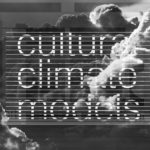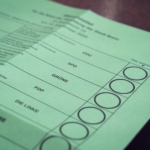In brief
A summary of key news.
GIANT BOLTS AND ARENA ROOFS
Cable cars, offshore platforms, wind turbines, the Schalke arena and the tropical house at Essen’s Grugapark are all among the many references of two recently accredited test laboratories at the Institute for Metal and Lightweight Structures (IML). The Essen Laboratory for Lightweight Structures (ELLF) and Essen Laboratory for Steel Construction (ELSta) work world-wide and test both during production and in the event of damages. Specialised in load-bearing structures made of membranes and foils as well as bolted connections in steel construction, they stand almost alone in Germany. As laboratories that conduct their own research at a university, they are even unique in their fields in Germany.
‘If a new sports stadium is built somewhere, for example for the Olympic games, its roof construction will probably pass through our laboratory,’ reports institute head Prof. Natalie Stranghöner. Her team at ELLF researches into materials for these membranes as well as examining existing fabrics for large-scale projects: weather resistance, tear strength and stiffness are only some of the parameters that they analyse.
ELSta focuses on bolted connections. The team is particularly proud of its tightening test rig for mechanical fasteners, be-cause it is the largest at a university in Germany. It enables testing of high-strength fasteners up to 80 mm in diameter (e.g. for wind turbines): ranging from the material itself to coatings, lubricants and to the correct installation.
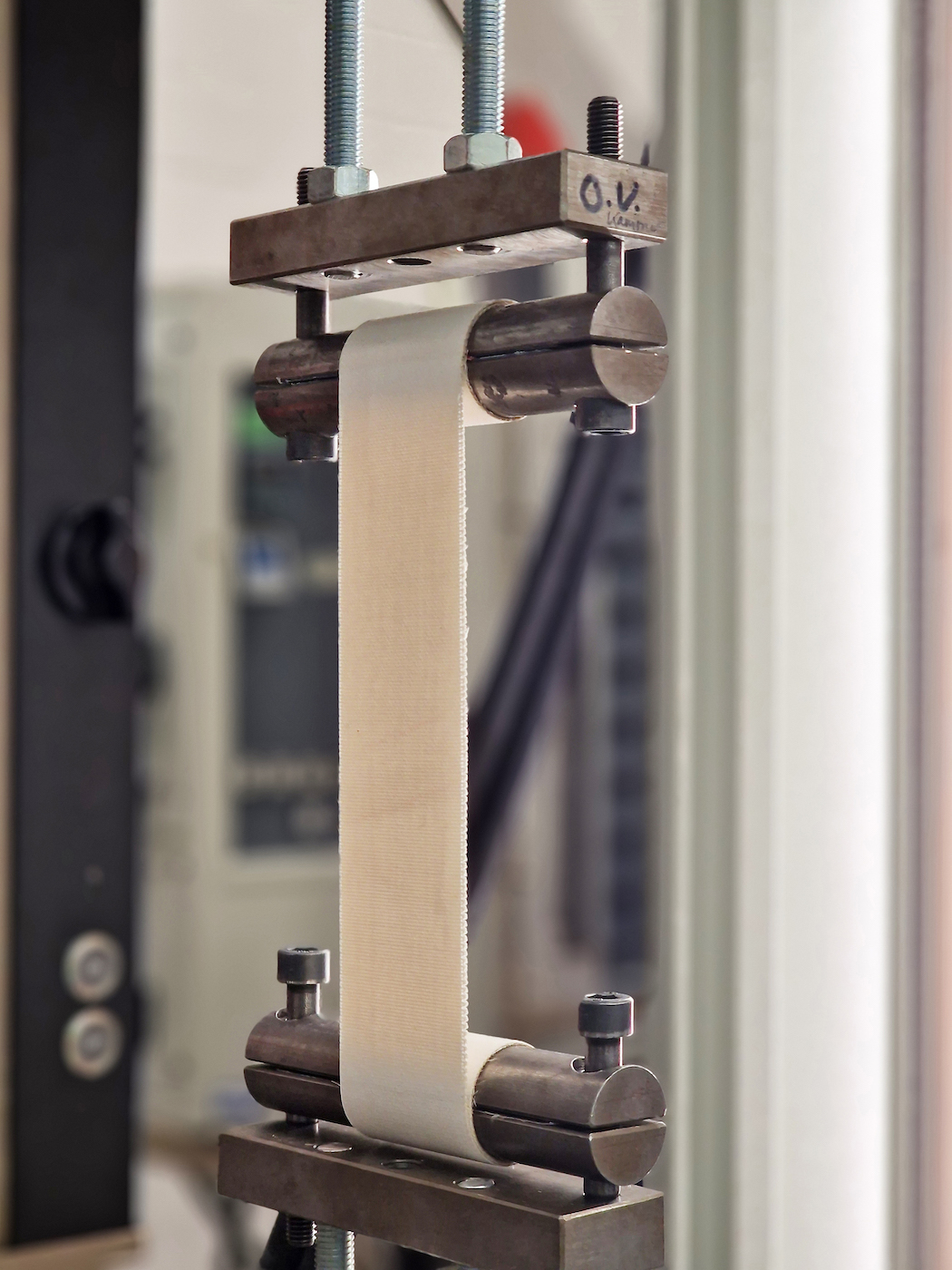
ENABLING TRANSPLANTED KIDNEYS TO LIVE LONGER
A project intended to extend the life span of organ transplants by making it possible to spot complications after a kidney transplant through the use of apps and AI is being launched at Essen University Hospital, in Berlin and Erlangen (project management). The consortium is receiving 5.7 million euros from the German Federal Joint Committee’s innovation fund, with UDE’s Medical Faculty receiving almost 1.1 million euros.
On average, a donor kidney functions for 15 years. With digital monitoring it is not only possible to extend the life span of the organs, but also to improve transplants’ aftercare.
A smartphone app enables the exchange of health data with transplant centres and specialist doctors, reminds about taking medication and records the daily well-being of patients and their vital parameters. This new type of care is designed for the first year of aftercare, and will be offered at the kidney transplant centers in Essen, Erlangen and Berlin.
Health data is collected, analysed with the help of AI, and monitored by telemedicine teams who act immediately in the event of anomalies. ‘This will reduce the loss of transplants, morbidity, mortality, and also the costs of supply in the long term,’ says UDE kidney specialist Prof. Lars Pape. Computerised analysis is carried out by the team from the University’s Institute for Artificial Intelligence in Medicine (IKIM).
SUSTAINABLE MAGNETS
Powerful magnets can cool, heat and generate electricity. A group led by UDE is researching new magnetic materials that are efficient and environmentally-friendly. These are usually produced using rare-earth elements. The PUMA (PUlsed high MAgnetic fields for new functional magnetic materials) project, which has been granted 2 million euros in funding by the German Ministry of Research, aims to develop highly efficient magnets reducing the amount of critical raw materials.
‘We are focusing firstly on permanent magnets. They are most effective for efficient energy conversion and are used e.g. for e-mobility or in generators e.g. for wind farms,’ explains physicist and project head Prof. Heiko Wende (UDE). ‘In addition, we are researching new materials that change their temperature as soon as they are exposed to a magnetic field. We want to make use of this phenomenon for solid-state-based cooling applications (e.g. refrigerator, air conditioning) as a climate-friendly alternative to conventional gas compression refrigeration.’
The group plans to build a new pulsed high field system at a beamline of the European Synchrotron Radiation Facility (ESRF) in Grenoble, France. This will generate magnetic fields with more than 50 Tesla – that equals a million times the Earth’s magnetic field, thereby enabling analysis of the interactions that are essential to the functioning of magnetocaloric materials. The project also involves the Technical University of Darmstadt and the Helmholtz-Zentrum Dresden-Rossendorf as partners.
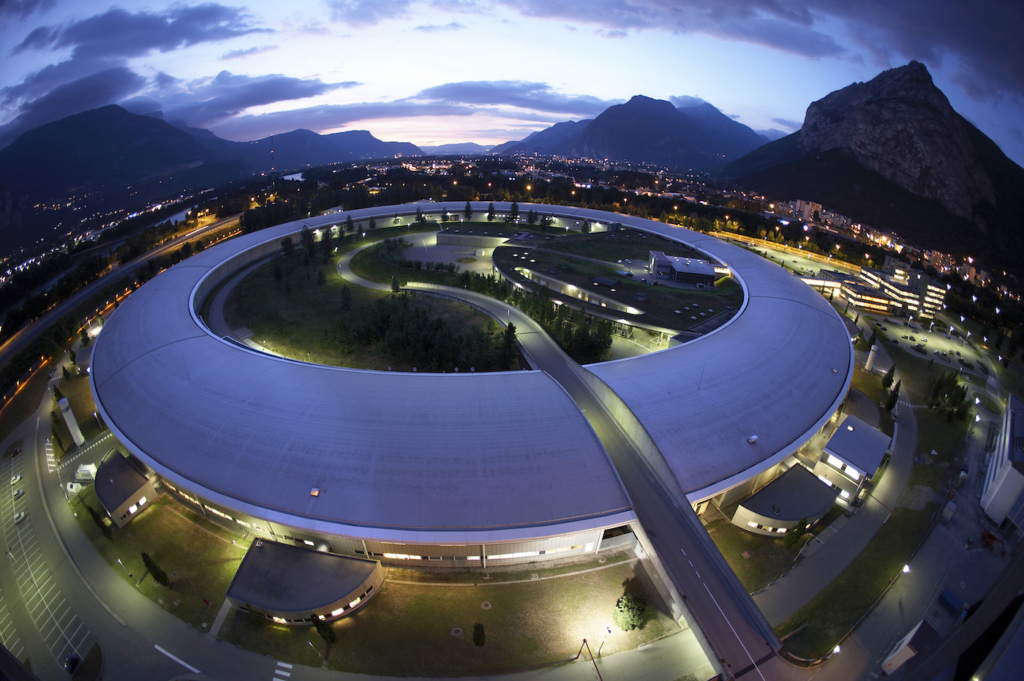
ERC STARTING GRANT FOR COMPUTER SCIENTISTS
Digital contracts known as ‘Smart Contracts’ are used to carry out actions automatically when predetermined contractual conditions are met. This makes them vulnerable to attack by hackers. Prof. Lucas Davi from UDE’s paluno – the Ruhr Institute for Software Technology – is developing solutions that will fix security loopholes while they are still in the programming stage. For this he has received a 1.5 million euros Starting Grant from the European Research Council (ERC).
Cryptocurrencies are based on Smart Contracts – these are where the conditions of a digital contract are integrated into a constantly extendable list (blockchain) and can be automatically executed. In future, real estate transactions, licensing, supply chain checks, and control of production processes will also take place using Smart Contracts.
As a result, interest in Smart Contracts is growing in hacker groups. ‘The programs are permanently online, and as soon as a weak point in the code is discovered it can easily be exploited,’ Davi reports. His goal is to realise an initial integrated protective concept by 2027. ‘The software will identify and automatically fix programming errors in the development phase. Cyberattacks on Smart Contracts and routine transactions will be recognised by a new monitoring tool and averted before greater damage occurs.’
NEW NATIONAL CENTER FOR TUMOR DISEASES
Supported by the University Hospitals of Essen and Cologne, the National Center for Tumor Diseases (NCT) West has been one of the six permanent national sites of the research center since February 2023. An important condition for its success was the regional government-backed foundation of the Cancer Research Center Cologne Essen (CCCE), which since 2020 has received 20 million euros as a center of excellence in cancer research.
The NCT unites sites in Berlin, Dresden, Heidelberg, the South-West (Tübingen/Stuttgart with partner Ulm), WERA (Würzburg and partners Erlangen, Regensburg and Augsburg) and West (Essen/Cologne). In future, together with the German Cancer Research Center, it will take clinical research into new cancer diagnosis processes and treatments to top international level. At the Essen/Cologne site, the scientists are looking at revolutionary topics such as medical data science, translational oncology, and computerised cancer biology.
MINT LESSON 4.0
MINT lessons can be made more exciting with a smartphone, tablet or apps. For instance, training videos and experiments using a mobile phone can motivate school pupils to learn. In order for digital media to be used meaningfully for teaching, teachers need to have had the necessary training. Until autumn 2025 the Germany-wide network ComeMINT (Communities of Practice MINT), will be developing suitable educational concepts. The consortium of 14 universities is headed by UDE and as one of six national centers of competence is being funded with 6 million euros from federal government and EU funds.
MINT subjects include biology, chemistry, information technology, mathematics, physics and basic science. How can mobile devices and tools be used to create ambitious teaching & learning scenarios for children and young people? What skills do teachers need? How can this be taught in their vocational training? These are the key questions which about 60 scientists are tackling. They will be developing concepts and apps for primary and secondary education.
STRENGTHENING TRUST IN DEMOCRACY
How can young people be encouraged to be enthusiastic about democracy, and how can political trust be built up in the EU despite sustained crises? These are the questions driving the European research project ActEU* headed by the Institute of Political Science at UDE and the University of Saarland, which started in the spring of 2023. The consortium is investigating the attitude of European citizens to political institutions and their legitimacy using a wide variety of methods: the twelve EU partners are using international surveys, experimental interviews and web analyses.
Based on their research results the scientists then want to develop practical measures for the promotion of democracy to young people. EU expert Prof. Michael Kaeding believes this offers massive opportunities: ‘We will develop new materials for the teachers at universities and schools.’ Comics in particular will be used to make democracy tangible. Kaeding wants to develop them together with cartoonists and his EU partners, and then deploy them for teaching and political education throughout Europe. Over the next three years the project will receive 3 million euros from the EU’s Horizon Europe pro- gramme, with 600,000 euros going to UDE.
* ActEU: Towards a new era of representative democracy – Activating European citizens’ trust in times of crises and polarization
ENERGY IN THE FORM OF IRON
Transporting ‘green’ energy in the form of iron is the vision of a project under the coordination of UDE that is receiving 1.3 million euros funding from the German Ministry of Research. Hydrogen (H2) is highly-flammable, very volatile and embrittles many materials. Until now this combination has made transporting it costly. A team headed by Dr Rüdiger Deike, UDE-Professor of Metallurgy and Forming Technology, wants to change this.
The idea is to take electrical energy generated by photovoltaic plants in a location with plenty of sunlight and easily-available water supplies, e.g. Africa, Australia or South America, and use it to split water into oxygen and hydrogen. Due to the reduction of iron ore (ferric oxide) with hydrogen, iron is produced, which can be shipped in the form of miniature briquettes or spherical pellets. When they reach their destination, the reverse reaction is initiated, to recover hydrogen and ferric oxide will be produced again.
Over the three-year project, the engineers want to identify suitable ferrous alloys which can undergo the chemical reactions as often as possible without loss. The Me2H2 Eisen-Dampf-Prozess (Me2H2 iron-steam-process) project will form the basis for pro- cess and plant technology on an industrial scale. The UDE researchers are working alongside the Technical University of Clausthal and the Institute of Materials Engineering (IWT) Bremen. ThyssenKrupp Steel Europe AG and the SMS Group GmbH are partners.
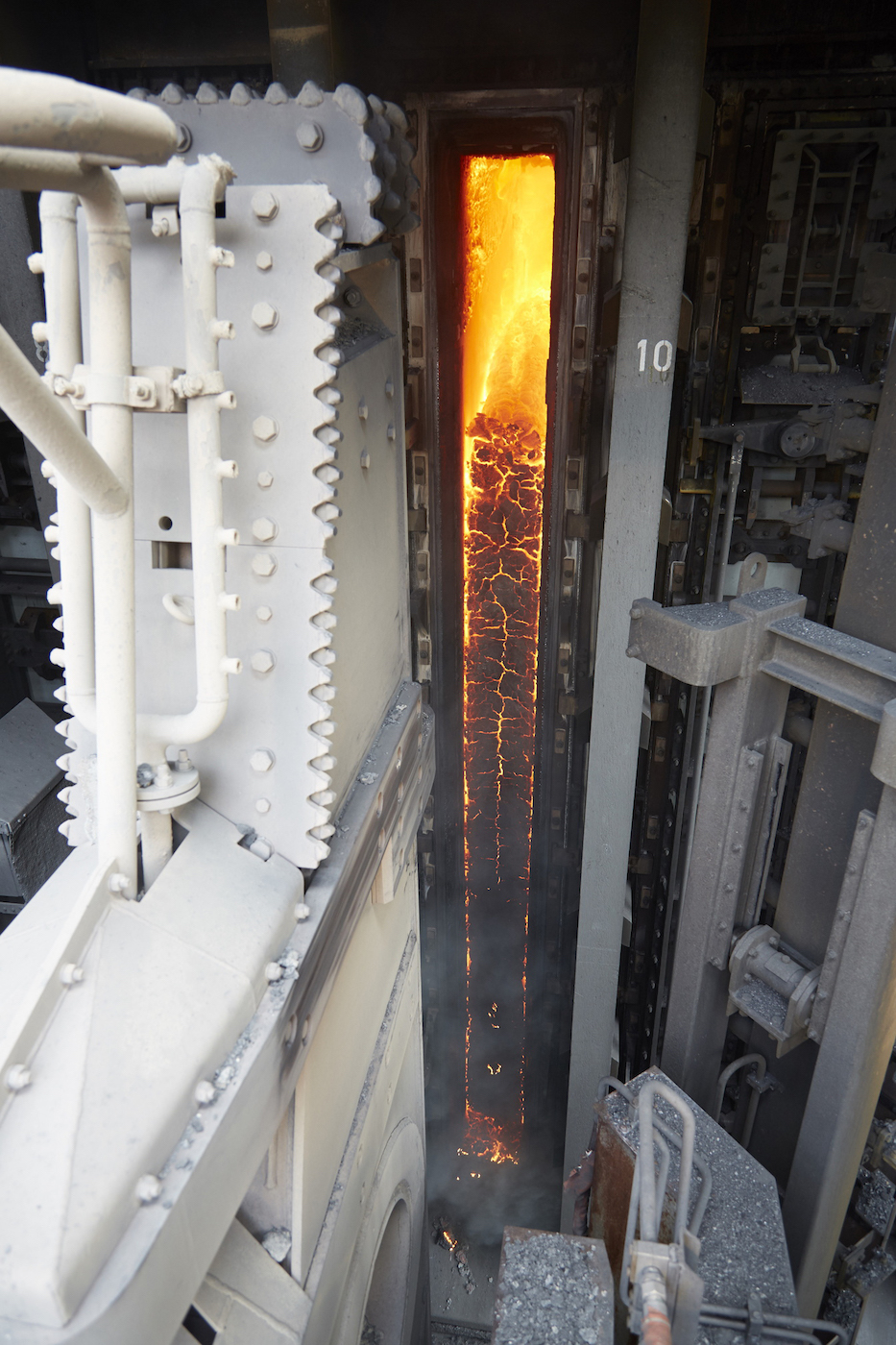
CO2-NEUTRAL POWER FROM HYDROGEN ENGINES
Hydrogen engines are CO2-neutral power source for heavy equipment such as trucks, tractors and construction machinery. Ways of making them run more consistently and more efficiently are being researched by a DFG Research Unit headed by the UDE. Starting in 2023, the group is researching at four universities how to optimise the combustion process in hydrogenfuelled engines. In the first funding phase (2019-2022), the group focused on conventional gasoline fuels. The UDE engineers’ goal now is to be able to predict the irregular combustion processes and fluctuations that occur when running hydrogen engines. ‘Then we can develop suitable countermeasures to optimise the efficiency and reliability of hydrogen engines,’ explains speaker Prof. Sebastian Kaiser of the UDE-Institute for Energy and Materials Processes.
The German Research Foundation is supporting the project Cyclic variations in highly optimized hydrogen-fueled sparkignition engines: experiment and simulation of a multi-scale causal chain with around 2.8 million euros, with 852,000 euros going to UDE.
CLIMATE-FRIENDLY STEEL
Germany is the largest steel producer in the EU. About a third of the carbon dioxide (CO2) emitted by Germany’s entire industry is produced in steel industry. A low-CO2 process route to produce green steel is in prospect, but will however take decades to be fully-established. For the transitional period, engineers under the coordination of UDE are developing a concept for recycling existing CO2. The German Ministry of Research has granted the project 1.2 million euros in funding.
The major steel concerns will in future convert to direct reduction plants. Working initially with gas and later with hydrogen, they reduce iron ore to iron and then smelt it into steel with electric furnaces. However, it will take time until the necessary infrastructure is ready. In the transitional phase direct reduction produces ultrapure CO2 as a byproduct which will be recycled in blast furnaces. So in the next 20 to 30 years the classic process will exist side-by-side with the new one. Led by project head Prof. Rüdiger Deike from the Institute of Metal Technologies, engineers working together with ThyssenKrupp Steel Europe AG and TU Clausthal are developing a concept for how CO2 can be recycled directly in the process in the short term. The aim of the NuCOWin project is to answer the fundamental questions concerning the implementation of process and plant technology on an industrial scale.
NEW TRETMENT AFTER A STROKE
Stroke is the second most common cause of death worldwide. Furthermore, next to a heart attack, no other disease so often gives rise to disabilities in adults. Yet in medical practice there are no reliable treatment options. The ImmunoStroke Research Unit, funded by the German Research Foundation (DFG), is studying the immune system and stroke-related damage to the brain to seek out a basis for new treatments. Its goal is to un- cover mechanisms and immunological interactions which in some cases only arise long after a stroke.
In the first research period, the group which was set up in 2019 was able to establish that the immune cells, T-cells and micro-glia play an important part in the response of the immune system in the central nervous system after a stroke. New medicines specifically targeted at the immune cells in stroke therapy can now be developed. The DFG is supporting the project in the second funding period with roughly 4.5 million euros, with UDE receiving about 750,000 euros between 2022 and 2025.
Main image: Ingenieur Christoph Abraham prüft eine hochfeste Schraube von 72 mm Durchmesser für eine Windenergieanlage. | © UDE/Dominik Jungbluth


